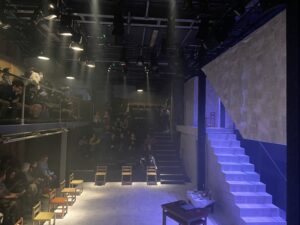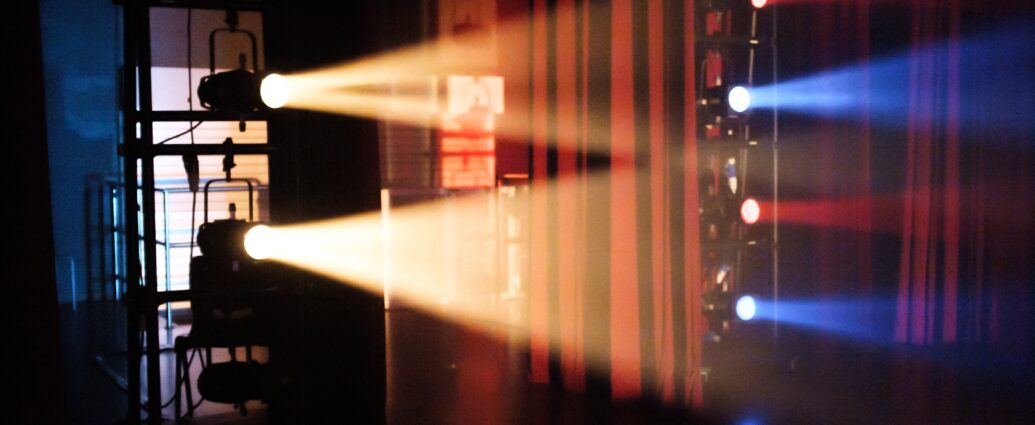Maddie Rose Baker
Trigger warning: sexual assault.
Even before the acting starts, I know The Apology will be different from other plays I’ve seen.
Written by South Korean former journalist, Kyo Choi, the play confronts a topic rarely seen in British media, let alone theatre -‘comfort women’. This euphemism refers to the women forced into sexual slavery by the Japanese Imperial Army during World War Two.
It is a subject close to my heart as a young woman and journalist, particularly because I have spent time connecting with the Korean community in London and have a background in east Asian history and culture. My overwhelming feeling as I watch is that by bringing ‘comfort women’ into the spotlight, Choi is refusing to shy away from war’s harsh reality and the continuing fight for justice.

Choi’s Character Depictions
Once the play begins, it’s easy to forget my surroundings. I may be sitting a few rows up in the Arcola Theatre in east London on an early autumn evening, but a couple of scenes in and I’m being pulled into the stories of The Apology’s three matriarchs – Sun-Hee, Yuna, and Priyanka.
“the cast are unafraid to challenge audiences”
The first scene is a chilling silhouette of a Japanese soldier raping Sun-Hee in 1945. In the coming scenes of the production, the cast is unafraid to challenge audiences and is able to bring to life the complexities of Choi’s characters.
It’s now 1991, and one example of Choi’s flawed characters is Jock. He grates with Priyanka, who is working for the UN as they begin their investigation into ‘comfort women’. Meanwhile, Yuna’s father, Han Min, is another ambiguous but significantly more likeable character. While watching the production, it is clear how flexibly Choi weaves these different strands together: World War Two, the UN’s investigation, family ties, and the slow change offered by legal proceedings.
The last line of the play, exchanged between two leading women – Priyanka and Yuna – at Sun-Hee’s funeral, says it all. As the numbers of the survivors dwindle, justice feels ever more urgent.
Background Research of The Apology
“authentic and compelling”
What is also apparent is the behind-the-scenes effort and direction at work during this production. Choi scoured UN reports, testimonies from former ‘comfort women’ and historical documents to make her fictional story feel authentic and compelling.
Even though the pandemic delayed The Apology’s opening, it feels oddly pertinent today. As we hear about those caught up in conflict around the world and ‘comfort women’ punctuate the headlines about South Korea-Japan relations, this dramatisation of the horrors committed over 70 years ago resonates with audiences. The ‘comfort women’ of World War Two still await a full apology, making this play a powerful lesson in perseverance in the face of injustice.
The Apology is on at the Arcola Theatre until 8 October. Standard tickets are £25, and concessions are £20 and can be booked on their website.
Featured image courtesy of Wesley Pribadi via Unsplash. Image license found here. No changes have been made to this image.


1 Comment